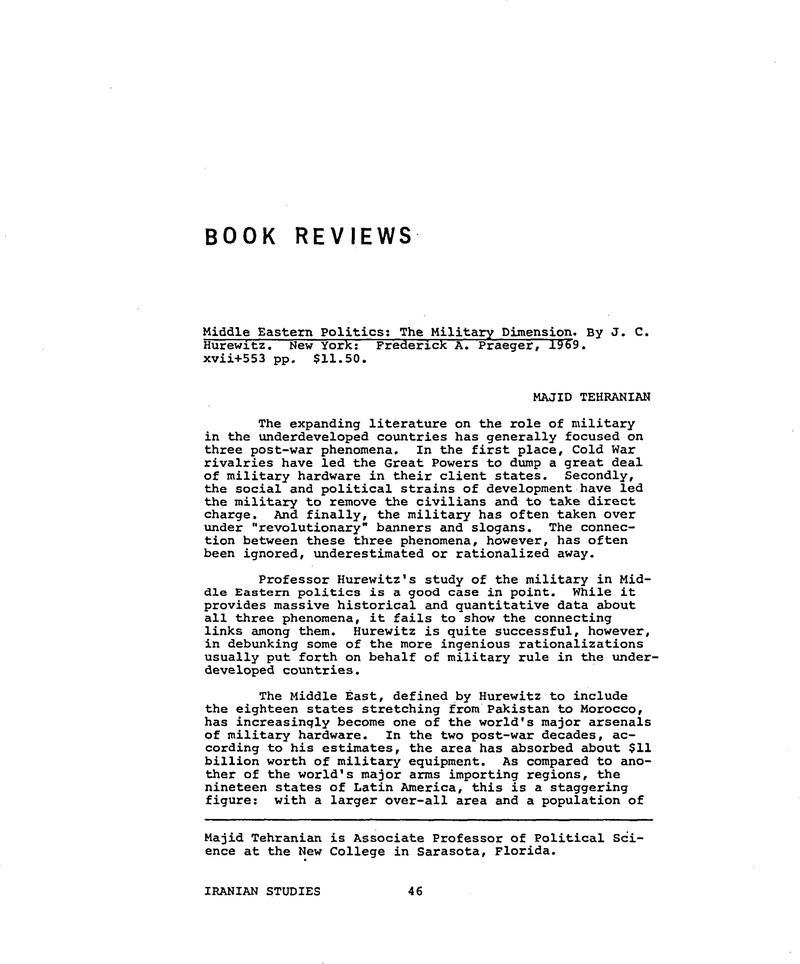No CrossRef data available.
Published online by Cambridge University Press: 01 January 2022

1. As is often the case, Middle Eastern events moved faster than the Western printing presses. After the recent military take-over, Libya can no longer be classified as a traditional monarchy.
2. “The more the army was modernized,” as Manfred Halpern has typically argued, “the more its composition, organization, spirit, capabilities, and purpose constituted a radical criticism of the existing political system. Within the army, modern technology was eagerly welcomed and its usefulness and power appreciated. By contrast, the political system showed greater inertia, inefficiency, skepticism, and greed in utilizing the products of modern science. Within the army, merit was often rewarded. In civilian politics, corruption, nepotism, and bribery loomed larger. Within the army, a sense of national mission transcending parochial, regional, or economic interest, or kinship ties seemed to be much more clearly defined than anywhere else in society.”--Halpern, Manfred The Politics of Social Change in the Middle East and North Africa (Princeton, N.J.: Princeton University Press, 1963).Google Scholar